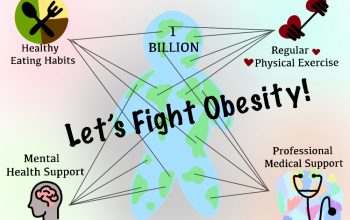We can never be truly free without being financially free
Ishtiaque Mahmud CONTRIBUTOR
We all want to make money. Arguably, for most of us, going through the education system for many years of our lives is solely to secure a stable source of income in the future. There’s just one big problem — we are trying to fill a bucket full of big holes. We study so hard to someday work for money, yet we never learn how to make money work for us. Financial literacy is a subject that no one teaches us about in school or at work. Today, nearly one-third of Canadians live without any savings or investments at all, and recent surveys have shown that more than half of Canadians live paycheck to paycheck. Consumer debt of Canadian households continue to soar higher without ever decreasing in credit card usage. Student loan totals have already surpassed the total national mortgage debt.
There is hope, however. At this very moment, there is a campaign for financial literacy going on nationwide, and I am part of it. In this article, I want to make two arguments why you, as students, need to grab this bull by its horns right now and take control of your money before heading to the work force. Financial literacy is an issue that will play a role in our lives every single day, and being proactive is the only hope for a future we all want.
The first argument I want to make is that our country right now faces an education-funding crisis. Post-secondary tuition keeps increasing every year at a pace higher than the inflation rates. With the average Canadian household income being around $70,000 annually — more than half of the population living paycheck to paycheck and one-third without any savings — many students resort to student loans to get a degree or diploma. However, the truth is, if parents were educated about some of the fundamentals of personal finance, each student would have a chance to go through post- secondary education fully funded. For example, assuming a household invests $250 for a child from age 0 to age 18 in an appropriate investment vehicle that provides an 8% annual compound growth, that child’s account would reach more than $100,000 in value before age 18. Maybe it’s too late for us, but not our future generation. Financial literacy gives you the power to take control of life, right here, right now. The same power can be used to invest for our future right now as well as paying o any debts that we have — with a different method, of course.
The second argument I want to make is that we have a spending crisis nationwide. That is, perhaps, the big- gest crisis we are facing today without any awareness. There is a saying that, in North America today, we buy things we do not need with the money we do not have to impress the people we do not like. It’s funny, but it’s true. It is ironic that we live in one of the wealthiest countries in the world, yet most people have money problems. As young adults, it is crucial that you take responsibility for your money, starting with your daily expenses and savings. Most money problems stem from lack of self-discipline and lack of knowledge.
Millennials today are spending on many consumer products and activities that did not exist in previous generations and, thus, we are spending more at this age than other generations did while earning less. If we are financially educated, we can make much better choices about our money and start building assets for our future much easier than anyone did in the past. Each person under 25 has a guaranteed chance of accumulating a million dollars before retiring, just by investing a few hundred dollars every month in an appropriate investment vehicle.
The degrees we get and the money we make will not matter in the end if we cannot keep what we earn. As things are now, a vast majority of Canadians cannot keep their hard-earned money because of lack of financial literacy. It has never been a priority to our nation. But now things must change — it is our generation who must take the initiative to change because we have both the disease that we inherited and the cure. We must choose the cure and spread it far and wide. Imagine a future where your family, friends, and neighbours are all crippled by financial instability, and a future where all of them are financially independent with no worries about job security, paying bills, taking time off for vacation — more time to focus on the things that truly matter in life. Which one would you choose?




